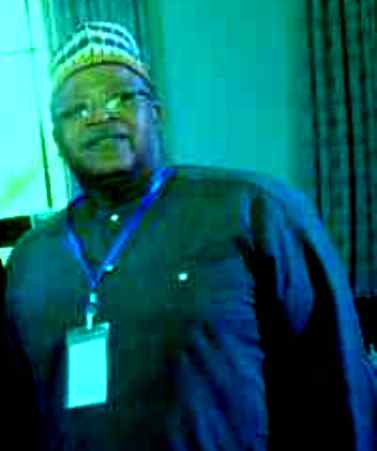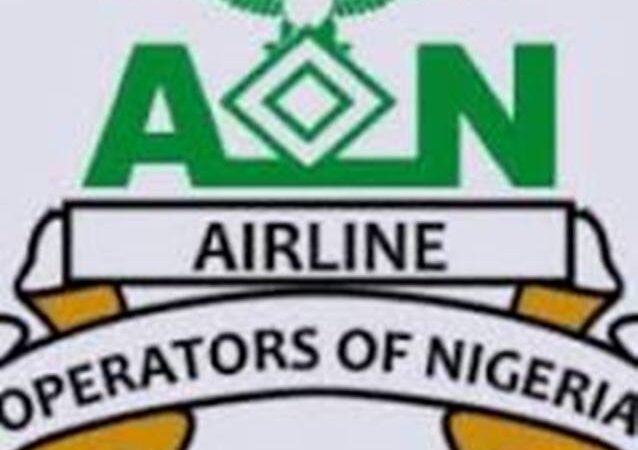Human Factor, Inefficiency As Bane Of Nigeria’s Aviation Industry Survival

The President of Association of Aircraft Owners of Nigeria (AAON) and Second Vice President of Aviation Safety Round Table Initiative (ASRTI), Dr. Alex Nwuba has identified human factors and inefficiency as impediments to the survival of Nigeria’s aviation sector.
Speaking at the 28th edition of the Annual Conference of the League of Airport & Aviation Correspondents (LAAC) held at Providence Hotel Ikeja, Lagos, under the theme, Aviation Survivability Amidst A Challenging Macro-Economic Environment,” Nwuba explained that “more effort must be made to address particularly, the human factor and efficiency issues” for the industry to survive.
In his paper titled “Infrastructure Impediments To Aviation Industry Growth”, he said “the most significant impediment to the growth of the Nigerian aviation sector which I mentioned earlier is the Nigerian factor. It is the impediment of doing, and then thinking. The clear lack of consistency and policy somersaults and the lack of well-laid future-proof plans until reality stares us in the face, then we decide to draw up a new set of plans, which remains in the pending box until what we are doing hits another roadblock.
We have not placed the required maintenance and training facilities to save significant costs. We have wrongly scaled our airports for which everyone will pay for the inefficiency, we have failed to maintain the training and development of our staff and most of all, we have failed to put in place the proper corporate governance structures that will bring about cost discipline, appropriate business management, growth and expansion models.”
“We need a new and sustainable aviation business policy that drives growth and positions Nigeria for the coming common trade area for goods, services and in particular, a single air traffic market. Nigeria believes it has a large market. Yet, we see the same 5% of the population who have bank accounts as the percentage of air travelers. This is a huge impediment and at the same time, an incredible opportunity.
The question is, who will study the Azul Brazilian model or any other model that can be used to grow the industry?” he asked, noting that “these challenges are independent but are rather interconnected; each amplifying the effects of others.”
Nwuba further said “economic factors are the issues that are tied to the economy and as we all know, maybe except those enjoying the perks of power, we are in difficult economic times.”
Talking about the intended objective of slots, Nwuba said: “I started with the statement that the situation in Nigeria is interesting because if we look at the 7am wave for which we are demanding slots to address the issues, we do not see a long line of aircraft waiting in double-digit minutes to take off nor are there significant delays resulting from so many arriving flights.
Therefore, one must question the benefit of slots to address any challenge. The same applies to terminal capacity and the number of counters to check-in passengers, handle the luggage and get them to the aircraft. We do not see people missing flights because there aren’t enough counters even though some people will argue otherwise.
Rather we must overcome the time mismanagement that is our character and the big man, airplane wait-for-me attitude. When we look at logistical delays like fueling for so many departures, we can identify the challenges clearly, as inefficiency; something equipment, manpower and efficiency can address. The issue of pilot shortage is a future problem, not a current one, but one that is going to become a major problem in the future as we are making limited efforts in developing new pilots, engineers’ dispatchers and air traffic controllers, even though we can see the challenges ahead.
I will therefore state that the operational impediments in Nigeria are the product of inefficiency and the lack of capacity in man and material.”
“Operational challenges for airlines are an interesting one and generally includes delays and cancellations, overcrowded airspace, pilot shortages, maintenance and delay disruptions and supply chain disruptions.
The elements of these are generally considered impediments and the industry looks to probably wrong assumptions as the causes in the Nigerian environment.
If we ask people in the industry about Nigerian airline’s operating challenges, one of the first issues to be named will be the need for slots to address the airline wave models that have many airlines leaving for Abuja and Port Harcourt at 7am and the need to create a spread of the operations to address what will be addressed as challenges.
The problem with the slot model is that it is probably a solution looking for a problem. It fails to address the character and the operating model of Nigerian airlines’ as well as competition in the industry.
Going back to the 70’s, 80’s and 90’s when Nigerian airlines were unreliable and before the era of online booking systems, consumers were programmed to catch the airline on the ground, ready to go; and even today, with all of the available technology, including the ability to analyze airline performance and reliability data, and with the persistent character of inefficiency and delays, which the airlines often blame on airports and operational issues, consumers still make every attempt to catch the first and most likely the most reliable flight of the day which will give advantages to the airlines that can get the earliest slots,” Nwuba further explained.
SEE MORE PHOTOS






